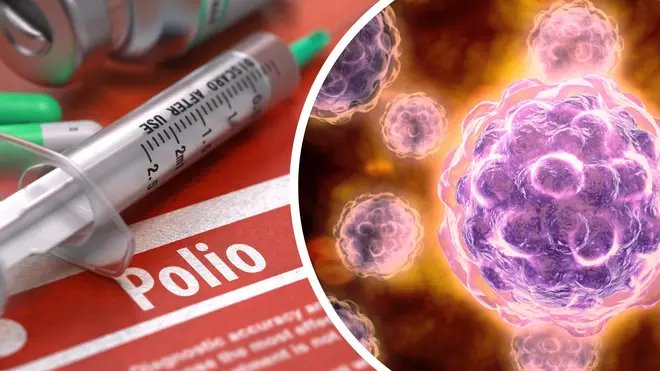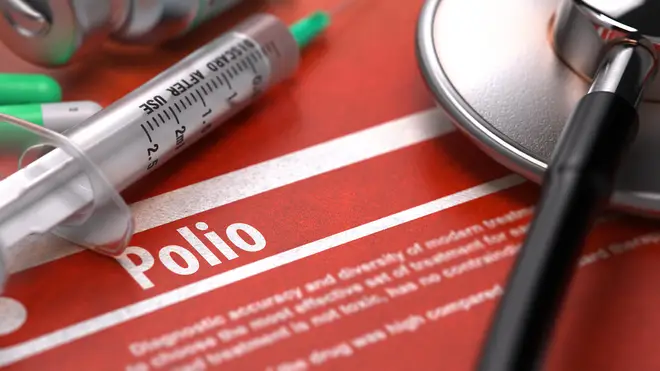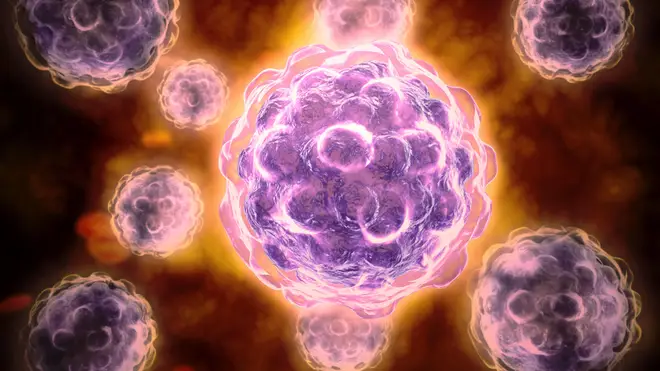
Matthew Wright 7am - 10am
22 June 2022, 15:17 | Updated: 22 June 2022, 15:59

A polio outbreak has been discovered in the UK for the first time since 1984 - find out what the virus is and how it can be treated.
Polio is a highly infectious disease which can be prevented by having a vaccine, making it very rare.
The virus invades the nervous system and can cause total paralysis in a matter of hours, according to the UK Health Security Agency (UKHSA).
It spreads from person to person and can affect any age but mainly affects children under three years old.
Most people who contract polio do not have symptoms, while some get mild-flu-like symptoms.
These include a high temperature, fatigue, headaches, vomiting, a stiff neck and muscle pain.
Symptoms usually last up to 10 days.
In rare cases, polio can cause paralysis. This is usually in your legs and can happen over hours or days after being infected.
Normally, the paralysis is not permanent and movement will slowly return.
However, it can be life threatening if the paralysis affects the muscles used for breathing.
Read more: Polio found in London sewage system as health officials declare national incident
Read more: "The iron lung still gives me nightmares": Polio sufferer's message for Covid anti-vaxxers

Despite polio having become very rare around the world - thanks to vaccination - there is still a small chance of getting it while travelling abroad.
It is mainly found in two countries: Afghanistan and Pakistan.
The infection is spread easily when an infected person coughs or sneezes.
But it can also be caught from food or water that has been in contact with the faeces of someone who has the virus.
The best way to prevent getting the infection is by ensuring you are up to date with vaccinations.
It is part of the NHS routine childhood vaccination schedule, which is given when your child is:
You need to have all of the above vaccinations to be fully vaccinated against polio.

Traces of polio have been discovered in sewage samples collected from London Beckton Sewage Treatment Works.
The plant serves about four million people in north and east London.
The UKHSA theorises that a person vaccinated abroad with a polio vaccine – possibly in Afghanistan, Pakistan or Nigeria – came to the UK early this year and was shedding the virus.
They have now passed that on to other closely linked people in the north east of London, who have shedded it into their faeces.
The NHS says treatment can include bed rest, painkillers, help with breathing and regular stretches and exercises.
However, depending on the severity, you may need to have specialist help such as physiotherapy or surgery.
The infection can cause some long-term or lifelong difficulties, according to the NHS.
Some people may be permanently paralysed while others face problems that need long-term treatment such as:
Former US president Franklin D. Roosevelt was left permanently paralysed from the waist down after getting polio.
Meanwhile, baker Mary Berry suffered with polio when she was a child, having previously revealed she spent three months in hospital with it at the age of 13.
The Godfather director Francis Ford Coppola, musicians Joni Mitchell and Neil Young and historian David Starkey are also among those to have had the infection.